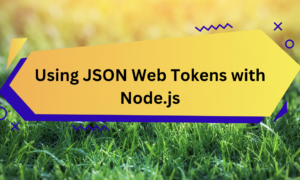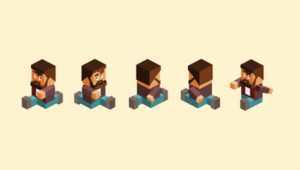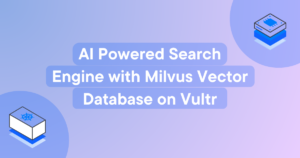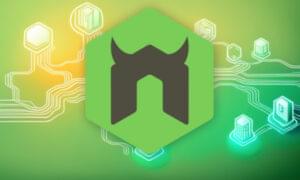With the looming Gold release of vBulletin 3.0, I was pleased recently to have the opportunity to interview Kier Darby, Lead Developer and Product Manager for vBulletin at Jelsoft, the famous UK-based firm that develops the well-known forum system.
Firstly, Kier, can you tell us a little about yourself, and your involvement with the vBulletin development team? What first got you into software development and what’s your programming background? How did you move into developing Web-based applications?
Well, I’m 27 and I live in the UK. I’ve been working for Jelsoft as part of the vBulletin development team for several years now, and I became the lead developer and product manager (taking over from John Percival) in late 2002.
My programming background goes back to my time at university, when I was reading for a degree in Computer Visualisation and Animation, 50% of the content of which was software development (C and C++). At the time, I really despised programming as I far preferred the artistic side, and I wanted to produce animation using existing tools, rather than having to write the software to do it.
After I left university, I set up a CGI animation company with two other friends who graduated at the same time I did. During my time with this company, we produced animation and imagery for several big clients, including AMD, Microsoft and FIFA.
I started to get back into programming through Javascript while I was putting together various Websites. I soon grew frustrated with the limitations of Javascript (back then, the great IE4 vs NS4 battle was raging, and it took more time to make your Javascript cross-browser compatible than it did to write the program in the first place).
Eventually, I found myself building a site that needed a dynamic, database-driven back end. Everyone I spoke to recommended PHP and MySQL, so I started working with those two. At some point it was decided that the site needed a message board, and vBulletin fit the bill. vBulletin was still in version 1 at that point, and there was quite a bit of additional functionality I wanted to build into to the system, so I started writing modifications for vB 1 and the soon-to-be-released vB 2. After a few months of writing these modifications (known as ‘hacks’ in the vBulletin community), I was asked to join the development team officially.
How long has Jelsoft been running and what made you decide to start developing a forum system such as vBulletin? Did it just start off as a few people working on a small system? How do you manage such a large project now?
vBulletin has been available to the public since early 2000. It came into being when one of the sites run by John Percival was finding it more and more difficult to sustain its message board, which was at that time running Infopop’s UBB. The forums were growing very large, and certain operations such as searching for messages would cripple the server, taking several minutes to complete. The very earliest (non-public) version of vBulletin was designed essentially to be UBB running with PHP and MySQL, rather than Perl and flat-file storage.
A lot of interest surrounded this new system, and it was decided to spruce up the code in order to produce a distinct product, and to release this code to the public as vBulletin. At that time, vBulletin was written and managed entirely by John Percival and James Limm. Since then, more developers were hired to work on vBulletin 2. The take-up of vBulletin 2 was enormous, so they decided to hire a dedicated support team.
The most recent version of vBulletin has grown into an enormously powerful system, equally capable of running a medium-sized forum or a monstrous, multi-million-post board. Managing a product of this size is a challenge in itself, and constant communication between the individual developers and the various departments of Jelsoft is the only way to prevent the complexity of the product from overtaking the knowledge of individual team members. We have regular meetings in a private IRC room, or (for those who have the technology) using video conferencing.
When did you first come across PHP, and what made you select it, over other technologies such as ASP and JSP or even Perl/CGI, for the development of vBulletin? What is it that you like so much about PHP?
PHP was introduced to me by a friend from university back in 1999. As for why I like it so much, that’s simple — no other language allows you to develop so rapidly, while at the same time providing you the depth of functionality and power to push the envelope.
Secondly, PHP is free and relatively simple for people to install. This means that an ever-increasing number of servers are going online PHP-enabled. Unlike ASP, which requires that you commit to a Microsoft software base, or Perl, which comes with the ‘chmod this file to x and that file to y etc…’ nightmare for inexperienced users, PHP represents a system that is easy for users to work, requiring no more skill than does the upload of HTML scripts in the manner with which users are already accustomed.
How do you prefer to work when you’re developing: long hours broken up by long breaks, steady daily progress, or otherwise? Can you offer any tips to PHP developers who feel that “24 hours a day just isn’t enough”?
I go through fits and starts. When the pressure is on I’ve been known to do 72-hour coding sessions, but as a general rule I prefer to keep regular ‘office hours’, although those hours often slip around the clock so that I end up starting work at midday and working through to the early hours of the morning. Generally speaking, though, I find that I get the most done when I am working through the daylight hours.
…and 24 hours in a day isn’t enough!
Is vBulletin/Jelsoft a full time job? When you’re not coding or managing the project, how do you like to spend your time?
For the past 18 months or so, vBulletin has been my full time job. When I’m not working, it’s usually because I’m asleep, but in those rare occasions when I’m not in front of my keyboard I’m a keen photographer and try to get out onto the trails as much as possible on my mountain bike.
So, what your secret weapons — your favorite development tools? What operating system do you use most and why?
My ‘essential’ software arsenal consists of Macromedia/Allaire Homesite for writing HTML and PHP, with a bit of Textpad thrown in for its block-selection mode and advanced regular expression search facilities.
I have tried a lot of the PHP-dedicated IDE solutions out there, such as the Zend Studio, but at the moment they feel rather immature and while some of the functionality is very nice (function/variable name completion etc.) the lack of customisability and flexibility keeps sending me back to Homesite. Homesite has a raft of functionality built in, and I can add my own by writing ‘ActionScripts’ in Javascript etc.
I also couldn’t be without Adobe Photoshop for image creation and manipulation, Tortoise CVS for source control, and Microsoft OneNote for all those essential jottings and scribbles you inevitably have when working on lots of areas at the same time.
As far as operating systems are concerned, any machine I expect to sit down in front of and work runs Windows 2000 or XP, whereas all my servers run various flavours of Linux. I feel that, with this setup, you have the best of both worlds, and while I wouldn’t consider connecting a Windows machine directly to the Internet as a server, I would be equally opposed to sitting in front of a Linux machine to run my various desktop applications. Maybe that’s just a matter of taste, but I feel that is where the respective systems’ strengths lie.
vBulletin could be considered the professional’s choice — it’s used on many huge Websites such as SitePoint, Lycos and Winamp.com. What advantages and features does it have over the other systems currently available? Why do you think vBulletin is the best choice of forum software?
vBulletin was written from the outset to be able to deal with a heavy load. vBulletin 3, in particular, has been further optimised for large boards. However, that optimisation has not been made at the expense of sites expecting to run a smaller scale operation.
Part of the beauty of vBulletin is its scalability, and the ability it gives to the admin to tune his or her installation to precisely suit a particular site’s needs. Over and above the essential components of forum/thread/post/user etc., almost every feature can be adjusted, or even turned off completely, in order to provide a fast and responsive experience for visitors to the site.
The vBulletin Admin Control Panel is extremely comprehensive in the ability it gives to the administrator to control his own site; from the obligatory switch to turn the entire system on and off, right through to the ability to change the appearance of *every* element of the user interface without ever leaving the control panel.
Unlike many of the other major forum software packages (phpBB or Invision Board for example), users have to pay for vBulletin. What made you decide to charge for the software? Why should people use vBulletin rather than one of the free alternatives?
While phpBB is Open Source software and Invision Power Services offer what they call an unlimited free trial but charge for support services, it was decided at an early stage that vBulletin would use a commercial licensing system, charging customers for their license, but offering priority support services as part of a vBulletin license holder’s entitlement.
Charging customers for a vBulletin license means that Jelsoft can afford to pay a very reasonable rate to both the development team and the support team. It adds greatly to the stability of a product or a company if its employees have a degree of loyalty to it, and if those employees have been working with the company and its products for an extended period of time. A level of expertise and speciality is achieved that is difficult to attain when there are either no permanent staff members, or when staff turnover is much higher. This benefit impacts directly on our customers.
When a customer purchases a vBulletin license, they are automatically entitled to priority support services (in addition to the community support offered at the vBulletin Community Forums). This means that anyone with a vBulletin license can contact our support staff at any time without having reservations over how much it might cost them. We have also found that customers who are regular posters at the vBulletin Community Forums tend to use the priority support system for questions they feel may be embarrassingly obvious, or might make them appear foolish in front of their peers. The availability of the priority support system, where your issue is confidential, and is assigned to a single person who will do their utmost to assist, helps alleviate this problem.
With paid support staff dotted all around the world, some of whom now work on a full-time basis, we have around-the-clock coverage for every major time zone, and we pride ourselves on the average time of response and resolution for issues in the support system.
vBulletin 3.0 is near gold release at time of writing. What aims did you have for the project when you first set out from version 1? Did you have any inspiration for the system?
Although I wasn’t personally involved in the development of vBulletin 1.x, I believe I can speak for John in saying that the goals of the project then were to produce a bulletin board system that was easy to install and easy to use, with the power of a database back-end providing a quantum leap forward in terms of the time it would take to search the board for keywords or find all posts by a certain user etc.
After that was achieved, the pre-eminent goal of vBulletin development has been to respond to customer suggestions for tools and procedures that will make their job as administrators easier, and to provide an ever-richer environment for the visitors to their sites to experience and interact with. vBulletin 3 continues this tradition.
What part of vBulletin do you like working on most?
The first thing that attracted me to vBulletin was the template system, and it’s still the area I most enjoy working with, making it ever easier for administrators to create rich customized environments for their visitors. I’m particularly pleased with the new style system for vB3, which allows administrators to create infinitely nested styles, each inheriting customisations made in their parent styles.
Do you think that a forum is an essential part of a big Website? What benefits do you think that having a forum can give Website owners?
On a site where interaction with the public and or customers is valued and will be attended to, a message board system such as vBulletin can certainly be of enormous benefit in keeping a company or organisation in touch with the people who visit their site. A message board has the distinct advantage that questions asked by one visitor can be referred to again and again by anyone, cutting down time spent endlessly repeating the answer to those queries that seem to crop up again and again.
However, I wouldn’t go so far as to say that a message board is an essential part of every big site. Handled badly, a forum can be a very bad thing. One example that springs to mind is a company specialising in computer hardware. The staff opened up a set of forums, entitled ‘Support Forums’. Unfortunately, the relevant people in that company rarely, if ever, answered questions from people posting on the forums. That company has since developed a very bad reputation with the Internet community for having apparently non-existent technical support services.
When people visit a site with active and thriving forums they tend to hang around there, meeting like-minded people and discussing things that interest them. From a commercial point of view, the potential for targeting advertising etc. to a specific demographic cannot be underestimated.
What are your plans for the future in regards to vBulletin? And how will it develop after the initial release? Do you plan on developing new features or branching out into a new product area?
I can’t give away any specific details, but our future plans include several new products, all of which will tie into vBulletin using the extremely flexible base code developed for vBulletin 3. Among the first of these products to be released will be the as-yet-unnamed Content Management System. Apart from that, I’m afraid you’ll just have to wait and see!
SitePoint thanks Kier for his time.



































































































